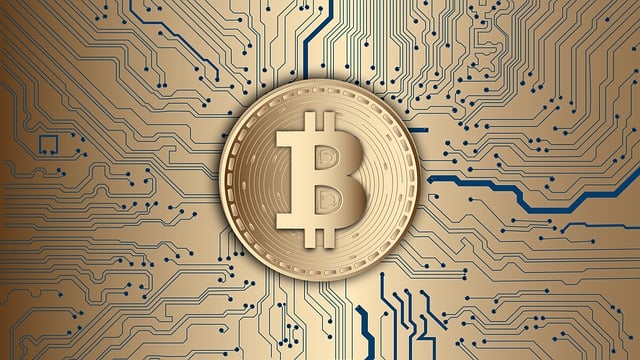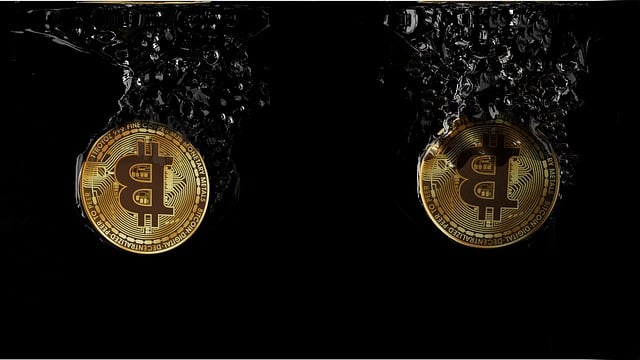Decentralized Finance (DeFi) platforms, powered by blockchain technology, are revolutionizing global finance by offering an inclusive, transparent peer-to-peer alternative to traditional banking. They democratize credit access, enabling anyone with internet access to borrow, lend, and invest without intermediaries. DeFi's open nature fosters competition, reduces fees, and enhances security through smart contracts. Despite regulatory challenges and risks, DeFi plays a pivotal role in reshaping financial landscapes, promising increased transparency and accessibility.
“Decentralized finance (DeFi) lending platforms are revolutionizing the way we interact with money, eroding traditional banking models. This article delves into the core of DeFi, exploring its potential to restore power to users within the financial system. We analyze the benefits and risks associated with these platforms, and look ahead to the future, considering DeFi’s role in reshaping the landscape and its implications for traditional banks. By understanding DeFi lending, we gain insights into a new era of financial inclusion and efficiency.”
- Understanding Decentralized Finance (DeFi) Lending Platforms
- How DeFi Restores Power to Users in the Financial System
- The Benefits and Risks of Using DeFi Lending Platforms
- The Future of DeFi Lending Platforms and Their Impact on Traditional Banks
Understanding Decentralized Finance (DeFi) Lending Platforms

Decentralized Finance (DeFi) lending platforms are revolutionizing the traditional financial landscape by offering a more inclusive and transparent alternative to centralized banking systems. These platforms operate on blockchain technology, removing intermediaries like banks and enabling direct peer-to-peer transactions. In doing so, DeFi plays a pivotal role in reshaping the global financial system by providing access to credit for previously excluded individuals and businesses.
Through smart contracts, DeFi lending platforms facilitate borrowing and lending processes, allowing users to participate in financial markets with greater flexibility and control. This democratization of finance enables anyone with an internet connection to access a range of services, from earning interest on idle assets to borrowing funds for investment opportunities or business expansion, all while leveraging the security and immutability of blockchain technology.
How DeFi Restores Power to Users in the Financial System

Decentralized finance (DeFi) platforms are reshaping the traditional financial landscape by restoring power to users. In a centralized system, power lies with banks and financial institutions that control access to credit and manage transactions. DeFi, however, leverages blockchain technology to create open, transparent, and accessible financial services. Anyone with an internet connection can participate in lending, borrowing, or investing without intermediaries, fostering greater financial inclusion.
By removing intermediaries, DeFi allows individuals to become both lenders and borrowers, offering more flexibility and potentially higher returns for lenders while providing easier access to credit for borrowers. This peer-to-peer model democratizes finance, enabling users to manage their own assets and make informed decisions based on real-time data and transparent terms. In turn, DeFi’s role in financial reshaping promotes competition, reduces fees, and enhances security through cryptographic verification, ultimately putting control back into the hands of individuals.
The Benefits and Risks of Using DeFi Lending Platforms

Decentralized finance (DeFi) lending platforms are revolutionizing the way we think about borrowing and lending money, offering a more open and accessible financial system. One of the key benefits is the elimination of intermediaries like banks, allowing users to borrow and lend directly from one another with greater transparency and lower fees. This democratizes access to credit, empowering individuals and small businesses that might have been excluded from traditional banking services. DeFi also enables 24/7 accessibility and global reach, as these platforms operate on blockchain technology, breaking down geographical barriers.
However, alongside these advantages, there are risks to consider. The decentralized nature of DeFi means that users must take on the responsibility of securing their funds, often through complex smart contracts. This can lead to potential bugs or vulnerabilities if not managed properly, resulting in financial losses. Additionally, regulatory uncertainty surrounds DeFi, as governments and financial authorities grapple with how to oversee these innovative but largely unregulated platforms. The lack of traditional safety nets, such as deposit insurance, also exposes users to credit risk, where borrowers might default on their loans without any recourse.
The Future of DeFi Lending Platforms and Their Impact on Traditional Banks

The future of decentralized finance (DeFi) lending platforms looks promising, with the potential to significantly reshape the global financial landscape. As DeFi continues to evolve and gain traction, its role in offering alternative financing solutions is becoming increasingly prominent. Traditional banks are taking notice as these platforms democratize access to credit, providing borrowers with more options and reduced barriers to entry.
DeFi lending platforms leverage blockchain technology to create transparent and secure peer-to-peer borrowing and lending systems. This innovation challenges the status quo, enabling individuals and businesses to bypass traditional financial intermediaries. With their decentralized nature, these platforms offer competitive interest rates, faster transactions, and greater financial autonomy, potentially disrupting the dominance of established banks and prompting them to adapt or risk becoming obsolete in a rapidly changing market.
Decentralized finance (DeFi) lending platforms are reshaping the financial landscape by restoring power to users and democratizing access to credit. While these innovative systems offer numerous benefits, such as transparency, security, and high yields, they also come with risks like smart contract vulnerabilities and market volatility. As DeFi continues to evolve, its growing impact on traditional banks underscores its potential to revolutionize global financial services, fostering a more inclusive and efficient economic system.
